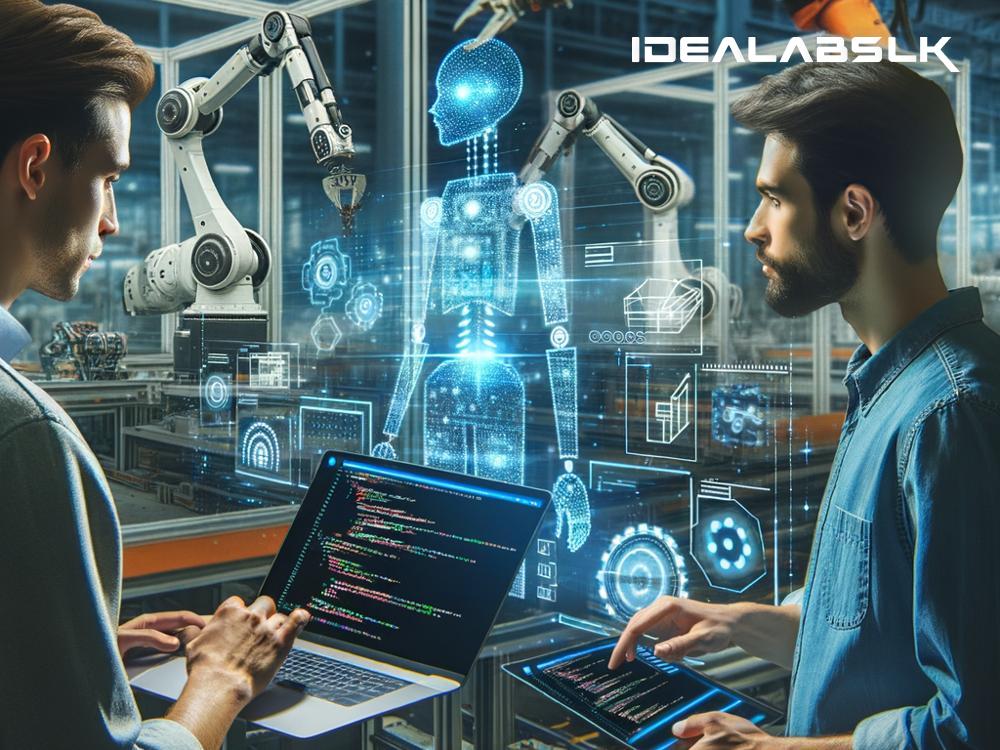Title: Revolutionizing Manufacturing with AI and Tailored Software
In the world of making things—from cars to cookies, smartphones to sneakers—there's a quiet revolution happening. It's not about inventing new materials or dreaming up products we've never seen before. This revolution is about how things are made, and it's being driven by a special blend of custom software and artificial intelligence (AI). Let's dive into how custom software development for AI-powered manufacturing solutions is changing the game.
A New Era of Manufacturing
Imagine walking into a factory where machines learn like humans, predicting problems before they happen, and adapting to changes on the fly. This isn't a scene from a science fiction movie. It's real, and it's happening now, thanks to AI. But AI on its own isn't enough. To truly unlock its potential, it needs the right software—software that's custom-built for each factory's unique needs. That's where custom software development comes in.
The Magic of Custom Software
Custom software is like a tailor-made suit. Instead of a one-size-fits-all approach, it's designed to fit perfectly with what a particular factory does and how it operates. In the world of manufacturing, where every minute counts and every efficiency gained can lead to huge savings, this bespoke approach is invaluable.
But why mix AI with custom software? The answer is simple: AI can process and analyze data in ways humans can't, spotting patterns and making predictions at incredible speeds. However, each factory has its own set of challenges, data types, and goals. Custom software acts as the bridge, enabling AI to understand and work within the specific context of each manufacturing environment.
The Benefits Unleashed
1. Predictive Maintenance: One of the biggest costs in manufacturing is machine downtime. AI-powered solutions can predict when a machine is likely to fail and need maintenance, allowing for repairs to be made without disrupting production schedules.
2. Quality Control: AI can analyze products in real-time during the manufacturing process, spotting defects that the human eye might miss. When paired with custom software, it can learn what to look for based on the specific standards of each facility.
3. Supply Chain Optimization: AI can forecast demand, manage inventory, and optimize logistics. Custom software tailors these abilities to the specific products, workflows, and supplier networks of each manufacturer.
4. Energy Efficiency: AI can help in reducing energy costs by optimizing the use of machinery and predicting the best times to operate based on energy supply prices. Custom software ensures these solutions fit each facility's specific energy usage patterns and goals.
Overcoming Challenges
While the benefits are compelling, integrating AI-powered solutions into manufacturing isn't without its challenges. It requires substantial investment, not just in the technology but in training staff to work alongside these new systems. There's also the task of ensuring data security and privacy, critical considerations whenever data plays a central role.
Yet, despite these hurdles, the push toward AI-powered manufacturing is accelerating, driven by the promise of greater efficiency, reduced costs, and a level of agility previously unimaginable in traditional manufacturing setups.
Looking Ahead
As we look to the future, it's clear that custom software development for AI-powered manufacturing solutions is not just a trend but a transformational shift. It's about creating not just smarter factories but a smarter approach to how we produce the goods that fuel our lives.
Innovators and industry leaders are already exploring the next frontiers, from leveraging machine learning for more sustainable manufacturing practices to incorporating the Internet of Things (IoT) for even greater connectivity and insight.
Concluding Thoughts
The marriage of AI and custom software in manufacturing marks a pivotal moment in how we think about making things. As this revolution unfolds, the promise of more resilient, efficient, and cutting-edge manufacturing processes comes ever closer to reality. For companies willing to embrace these changes, the rewards are vast, offering a glimpse into a future where the limits of what we can produce are bound only by the limits of our imagination.
For any company aiming to stay competitive in this new era, the journey starts with recognizing the power of AI and the importance of custom software. Together, they're not just changing the game—they're redefining it.

